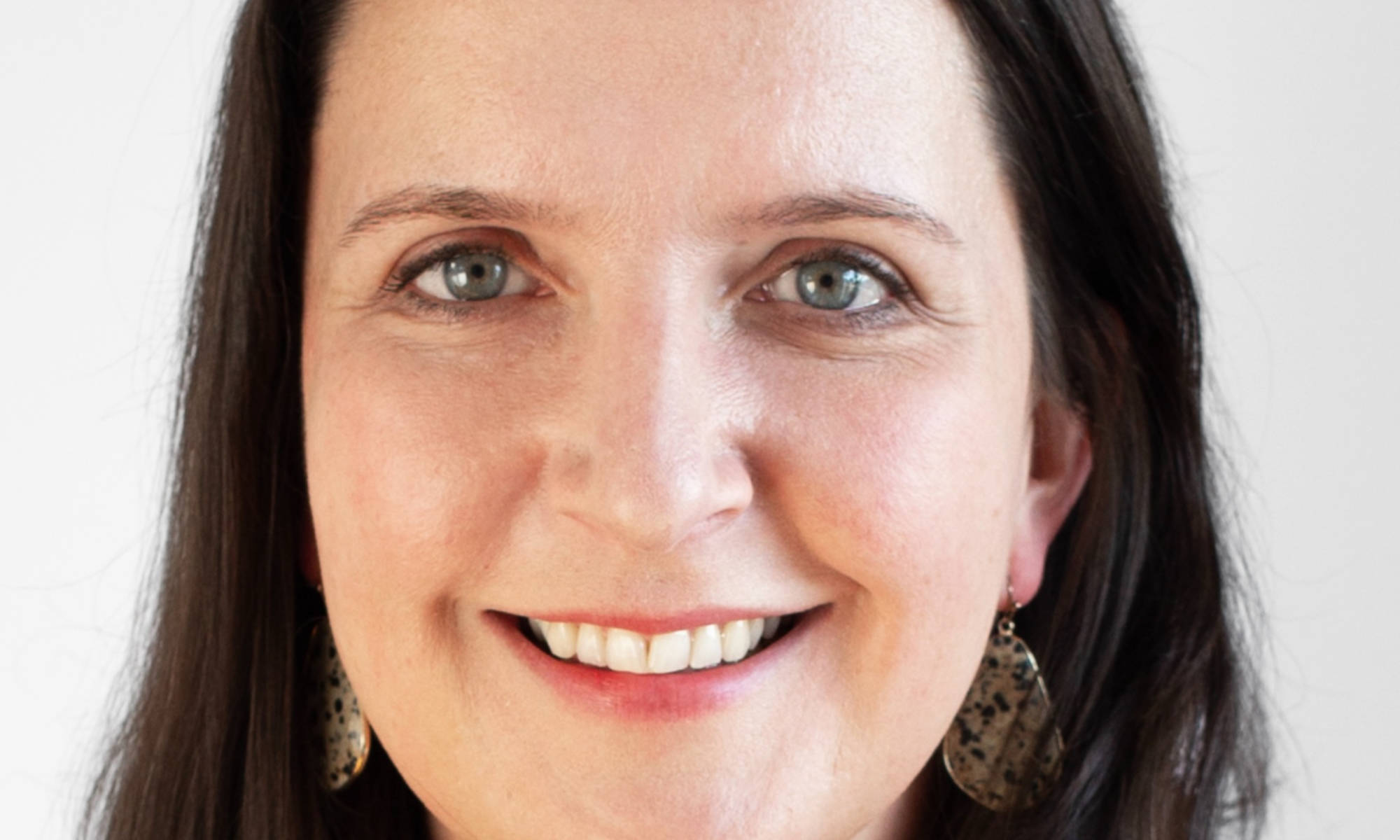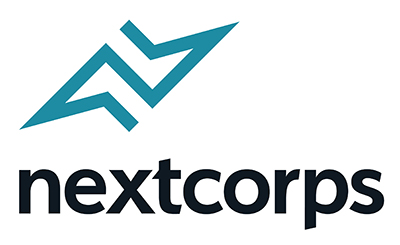 NextCorps, formerly High Tech Rochester, has announced the official opening of a new state-of-the-art facility dedicated to fostering the creation and growth of high tech companies. The new space, which occupies the sixth floor of historic Sibley Square, will serve as one of the cornerstones of the revitalization of downtown Rochester.
NextCorps, formerly High Tech Rochester, has announced the official opening of a new state-of-the-art facility dedicated to fostering the creation and growth of high tech companies. The new space, which occupies the sixth floor of historic Sibley Square, will serve as one of the cornerstones of the revitalization of downtown Rochester.
NextCorps is an affiliate of the University of Rochester and the region’s only state- and federally-designated business incubator. The $24 million project was supported with $10 million from the State of New York, $2.5 million from the federal Economic Development Administration, $3 million in private philanthropic donations, and is a priority project of the Finger Lakes Regional Economic Development Council (FLREDC). The opening of the facility marks the completion of the $16 million phase 1 of the project.
“The NextCorps accelerator’s move to establish its headquarters in this downtown Rochester landmark will catalyze and continue the economic transformation of both Rochester and the Finger Lakes region,” said Howard Zemsky, president and CEO of Empire State Development.
“This new space represents the culmination of years of planning and effort to spark the growth of our region’s innovation economy,” said Peter Robinson, vice president for Government and Community Relations with the University of Rochester and chair of the NextCorps Board of Directors. “None of this would have been possible without the support of the Governor Cuomo, our federal delegation led by Senator Schumer, Senator Gillibrand, and Congresswoman Slaughter, the Mayor and City Council, our state delegation, WinnDevelopment, DiMarco Constructors, and the generosity of donors who shared our vision to build a state-of-the-art high tech business incubator and accelerator in the heart of downtown Rochester.”
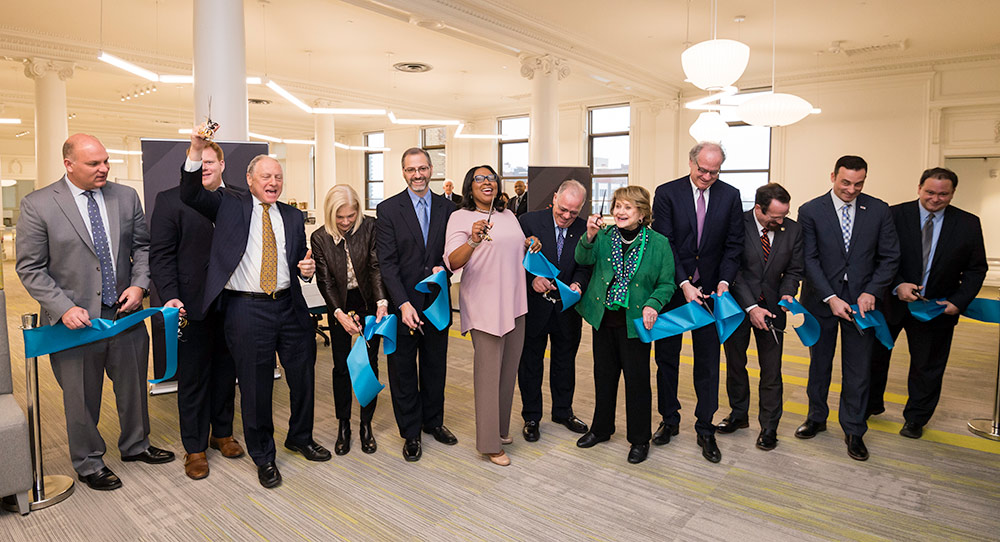
“By bringing together world-class academic and industry ideas and entrepreneurs and providing them with the resources and expertise necessary to grow and succeed, this new facility will help write the next chapter of the region’s economic story,” said James S. Senall, president of NextCorps. “Placing it in the heart of downtown Rochester will not only help us attract a new generation of entrepreneurs who want an urban work-live environment, but it will also help propel the redevelopment of the city center.”
The 40,000 square foot facility includes a signature co-working space located in the former Tea Room, private offices and suites, wet labs for biotech companies, a fully-equipped prototyping lab, conference rooms, a roof deck overlooking the Rochester skyline, an auditorium, and common areas, including a kitchen/cafeteria and game room. HTR has an option to build out an additional 28,000 square feet on the sixth floor in response to future demand.
NextCorps also provides resident companies with mentoring, legal, financial, accounting, networking, business plan development, and marketing services. The facility will be home to an array of software, biomedical, health care, photonics, and electronics ventures and can accommodate as many as 40 or more companies.
“When we built this facility we tried to think of everything an entrepreneur would need, so all they have to do is show up and start working,” said Senall. “We know that bringing entrepreneurs together under one roof helps increase the odds of success. This entire space was designed to foster interaction and drive ‘creative collisions’ that can create connections and partnerships that lead to growth.”
The opening of the new facility coincides with the launch of a new identity for High Tech Rochester. The name NextCorps was chosen to reflect Rochester’s history of reinventing itself to respond to new economic opportunities and meeting the challenge of what comes next. Corps is an acknowledgement that innovation and economic transformation can only be accomplished by dedicated group of individuals working collaboratively and with a shared vision to harness new ideas for growth.
Sibley Square – also a FLREDC priority project – is in the midst of a $200 million renovation by WinnDevelopment that will convert the 1.1 million square foot building into a mix of market-rate and affordable apartments with access to an entire floor of resident amenities, office and retail space, and health care services. The project will serve as a focal point for the new Rochester Downtown Innovation Zone and is one of the major driving forces behind the ongoing revitalization of the city’s urban core. In addition to restoring one of the region’s most historic and celebrated buildings, the project is expected to create more than 1,500 temporary construction jobs and 1,042 permanent jobs.
“We’re excited to welcome NextCorps to its new headquarters as we continue to transform the region’s most iconic building into a modern hub for housing, retail, and research and development,” said Gilbert Winn, CEO, WinnCompanies. “NextCorps’ choice of Sibley Square will write a new chapter in Rochester’s historic legacy of innovation through technology. Their presence will be a welcome catalyst for economic development.”
The new facility will serve as the headquarters for NextCorps, which has moved its staff from the Lennox Tech Enterprise Center in Henrietta to Sibley Square. In addition to high tech incubation and acceleration services, NextCorps also runs a number of other programs supporting business growth, including:
- The National Institute of Standards and Technology’s (NIST) Hollings Manufacturing Extension Partnership (MEP) Program – NextCorps serves as the regional office for the MEP program, which is a national network dedicated to assisting the growth of small to mid-sized manufacturing companies in the Finger Lakes region;
- Luminate NY – The world’s largest accelerator for photonics, optics, and imaging companies supported with $10 million from New York State through the FLREDC;
- NEXUS-NY – a New York State Energy Research and Development Authority (NYSERDA)-supported startup incubation/acceleration program for clean energy companies across the state;
- Rochester Venture Challenge – An annual startup business competition;
- The Entrepreneurs Network – A four-month accelerator program for startups or existing businesses seeking to grow;
- NYSERDA EIR Program – A statewide program that matches entrepreneurs-in-residence/mentors with clean-energy startups; and
- University of Rochester’s Student Incubator – part of the Ain Center for Entrepreneurship and facilitates student-run businesses.
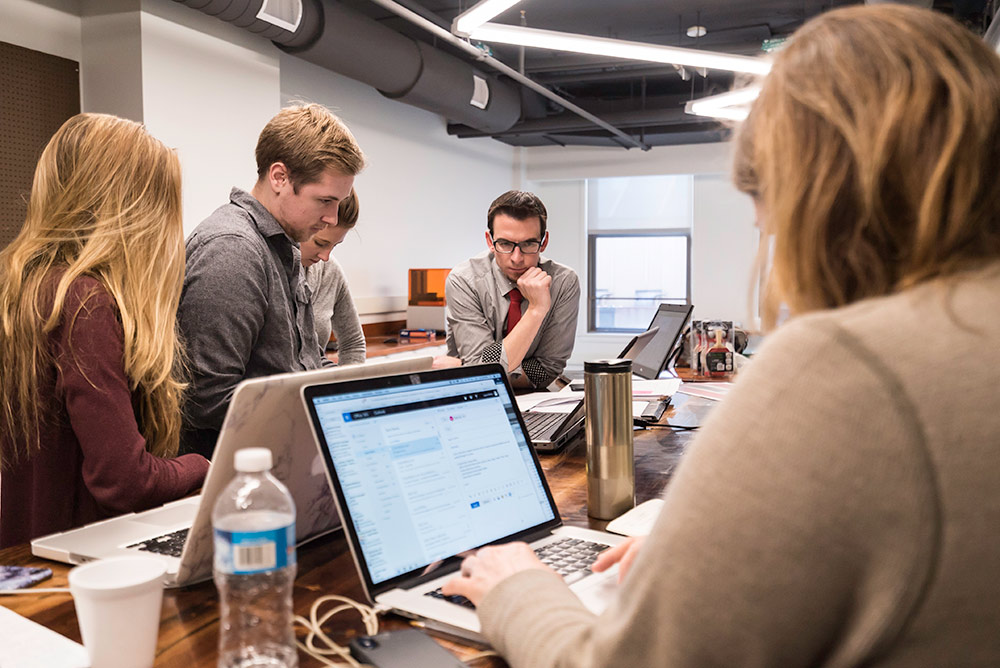
Rochester voices on NextCorps
“At long last, Rochester’s new high-tech business incubator is open for business – with new state-of-the-art space for dozens of businesses will soon call downtown Rochester home. NextCorps’ Business Accelerator is the launching pad to spur new jobs and push Rochester’s next generation of companies to new heights. I was pleased to help secure the $2.5 million federal grant to build the Accelerator, that together with the $42.5 million in federal New Markets Tax Credits secured to greenlight the Sibley Building’s rebirth, is turning Main Street and downtown into a hub for new businesses alongside new places to live, shop, eat, and more.”
— U.S. Senator Charles Schumer
“I would like to congratulate High Tech Rochester, now NextCorps, for the grand opening of their new downtown business incubator. High Tech Rochester has been instrumental in ensuring that innovators in the Rochester and Finger Lakes region have the necessary support to build their ideas into successful enterprises,” said Senator Gillibrand. “I’m proud to have fought for the federal funding that will help ensure NextCorps succeeds in its mission to encourage entrepreneurship and economic growth in the region.”
— U.S. Senator Kirsten Gillibrand
“Today is the culmination of a years-long effort. I secured the funding that helped High Tech Rochester build its Lennox Tech Enterprise Center in Henrietta more than 20 years ago. In 2016, I led the way in urging the Commerce Department to support their proposal to renovate its headquarters and take their economic development initiatives even further. This is a new era for the historic Sibley Square and local innovation that will support job creation across our region for years to come.”
— U.S. Representative Louise Slaughter
“The opening of NextCorps in Downtown Rochester is an exciting milestone for our city on many levels. This high-tech incubator breathes new life into one of Rochester’s most significant landmark buildings, brings more high skilled workers to our Center City and dramatically accelerates the growth of Rochester’s innovation economy. I am grateful to Governor Cuomo and Empire State Development for helping to bring this win-win-win to Rochester through Finger Lakes Forward. This development is helping us achieve our goals of creating more jobs, safer, more vibrant neighborhoods and better educational opportunities for our citizens.”
— Rochester Mayor Lovely Warren
“High Tech Rochester has been a critical partner in expanding Rochester’s innovation economy for many years. Now, as NextCorps, they are continuing to lead the charge in the growth of advanced incubation and acceleration services while helping to revitalize our downtown corridor in their new location. I am grateful to Governor Cuomo for his support which reflects a continuing investment in the future of our region’s flourishing high-tech economy.”
— New York State Assembly Majority Leader Joe Morelle
“Today’s announcement that NextCorps is now going to be calling the Sibley Building home is another example that Rochester and Monroe County is a leader in promoting world-class innovation in technology, manufacturing, clean energy, and state of the art businesses. By investing in these industries and the companies that help to foster cutting edge ideas, we can ensure that our community will continue to be a source of opportunity for all.”
— New York State Senator Joe Robach
“NextCorps now has a premier space to advance regional economic growth and foster entrepreneurship. I am confident that this new, state-of-the-art site will strengthen the Rochester area with more support for high-tech start-ups, biotech related jobs and existing smaller businesses.”
— New York State Senator Rich Funke
“I am pleased to join Governor Cuomo, NextCorps Director Jim Senall and his team, my colleagues in public service and those who are here to take the next step in the development of this entrepreneurial enterprise. I know this NextCorps will have a huge impact on our region and its economy. As a public/private investment, NextCorps will show new generations of entrepreneurs that with hard work, a little ingenuity, exemplary education and a strong foundation they too can build a bright future in our community.”
— New York State Assemblymember Harry Bronson
“We would like to thank Governor Cuomo for his help in realizing our vision for the region and for the City’s Downtown Innovation Zone. NextCorps’ Sibley Square location reinforces that vision which aims to develop a world-class innovation ecosystem by supporting entrepreneurship, driving economic development and helping to move the Finger Lakes Forward.”
— Finger Lakes Regional Economic Development Council co-chairs, Monroe Community College president Anne Kress and Rochester Chamber of Commerce president & CEO Bob Duffy

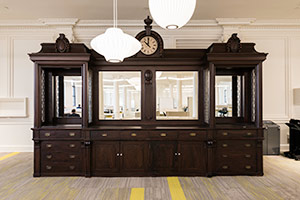
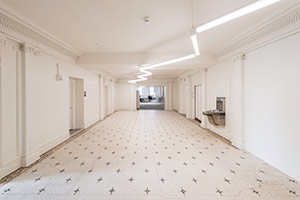
Company Profiles
More than 35 companies currently make up the client base of NextCorps, formerly known as High Tech Rochester, relying on the incubator for business expertise, resources, and networking opportunities. Some of the companies found their way to NextCorps from distant locales, while others started at the University, including LighTopTech, which builds optical instruments that enable noninvasive imaging in medical and industrial fields. LighTopTech was founded by Jannick Rolland, the Brian J. Thompson Professor of Optical Engineering at the Institute of Optics, and Cristina Canavesi, who earned her PhD in optics from the institute, as well as a master’s degree in technical entrepreneurship and management and an MBA from the Simon Business School.
Here’s a snapshot of a few companies that were drawn to the incubator after getting their start outside the University.

Interview with Dave Fuehrer, co-founder and CEO.
Describe your company in a few sentences.
GRYT Health is a digital health company with a social purpose. Our Stupid Cancer App connects people in all 50 states and across 50 countries with others just like them, providing them with information to manage their health on their terms.
What is your educational background?
I have a BS in communications and an MBA in technology management, both from the Rochester Institute of Technology.
How many employees do you have?
Gryt employs two people. Two others are contract workers who will be moving over into salaries positions.
What prompted you to start your company?
We didn’t actually intend on creating a company. We are all young adult cancer survivors and caregivers. We started with an idea of building something to help people who are facing what we each faced. That idea became a free mobile app that created a quarter of a million user interactions in its first year (2014). GRYT Health was born from a community; our desire to connect with others who understand exactly what we’re going through and our need for information to manage our health on our terms.
What is your customer/client range?
Our clients are global.
When and why did you join NextCorps?
When I learned about the new incubator in downtown Rochester, I immediately rented space and decided to move our company from Manhattan. I grew up in Rochester and, as I noted, earned both my BS and MBA from Rochester Institute of Technology.
How has NextCorps most helped you and your company?
By believing in us! I know my answer should be: resources, coaching, and connections, all of which are true. But the people at NextCorps believe in the work we’re doing and help us find ways to make impossible things possible. Jean Kase, my mentor and one of the staff, has changed our future. There is no question in my mind that NextCorps helped us go from an idea to a technology to a company that empowers cancer patients and caregivers to choose what’s right for us—on our terms.
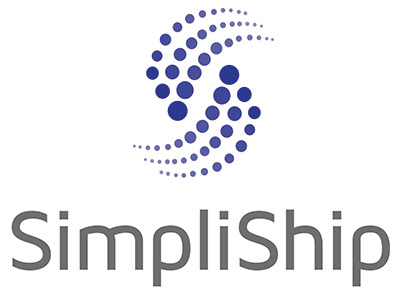
Interview with Michael Connell, co-founder and head of sales.
Describe your company in a few sentences.
By introducing state-of-the-art automation and visibility, SimpliShip is modernizing how the world transports goods. With SimpliShip, importers, exporters, suppliers, and others are able to communicate critical transportation data with their logistics partners in real time. Our easy-to-use software platform makes freight procurement easier, more transparent and more cost-effective for companies of all sizes.
What is your educational background?
I graduated with a BA in Communications from the University of Massachusetts/Amherst.
How many employees do you have?
SimpliShip has six team members.
What prompted you to start your company?
We couldn’t believe the lack of innovative solutions that existed in the trillion-dollar shipping industry. All around us the world is being digitized, but international transportation is still conducting business like it’s the 1970s. The process of procuring an international air or ocean freight rate, which is the first step in the process of moving freight, is still done largely via phone calls and emails with little to no transparency. So we quit our jobs and decided to build a digital freight procurement solution.
What is your customer/client range?
Our solution is used globally. We are, however, currently focused on importers and exporters based in the United States and on freight forwarders that service trade lanes in and out of the US.
When and why did you join NextCorps?
We joined in October 2016 as one of the Beta Space Pioneers, the first group of Rochester-based software companies to operate out of the Sibley building. Our original motivation for joining was to have a space for our team to meet. Free coffee and conference rooms were a bonus.
How has NextCorps most helped you and your company?
We quickly realized that being around a community of entrepreneurs has had the biggest impact on us. Being able to collaborate and share ideas with other founders who have experienced some of the same highs and lows has helped to make us a better company.
![]()
Interview with Alexander Wesley, co-founder and CEO.
Describe your company in a few sentences.
Arovia makes portable, desktop-sized monitors that can be collapsed to fit in backpacks, laptop bags, and purses.
What is your educational background?
I have a BS and an MS in optics from the University of Rochester, and an MBA from Rice University.
How many employees do you have?
Arovia currently employs four.
What prompted you to start your company?
The idea for the company came about when I discovered that I needed a large and portable display for myself for working on the go.
What is your customer/client range?
Our customer range is global.
When and why did you join NextCorps?
We joined NextCorps’ Luminate Optics Startup Accelerator, which started in January.
How has NextCorps most helped you and your company?
NextCorps has provided us with essential funding, lab space, and connections to manufacturers.

